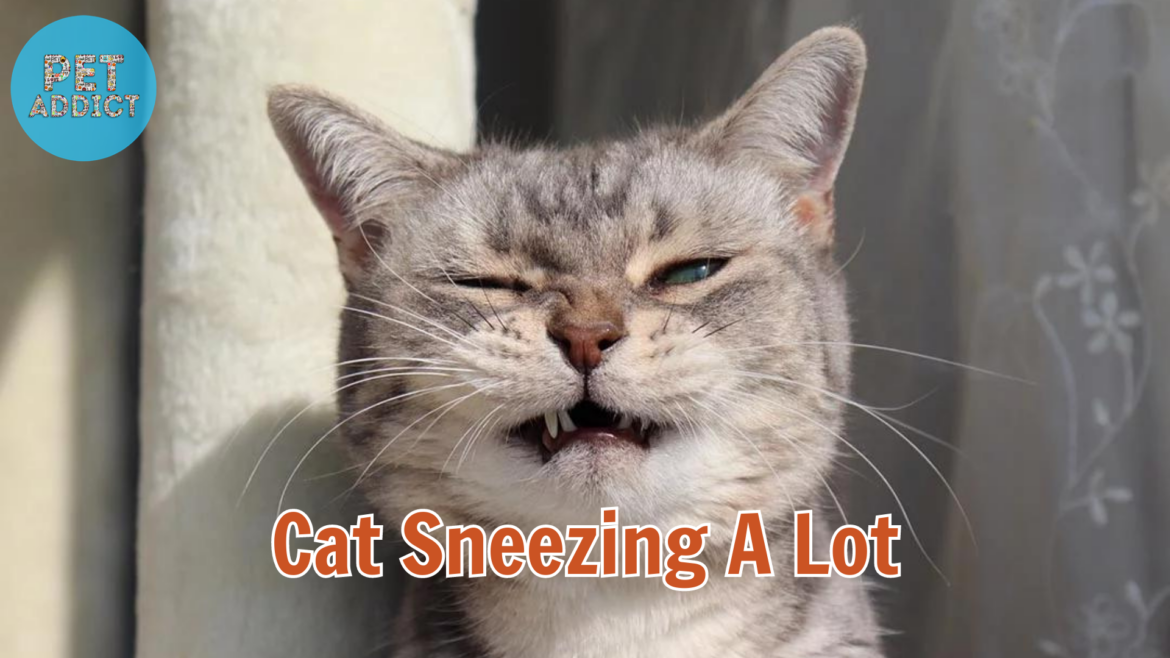Introduction
If you’re a cat owner, you know how adorable and endearing those little sneezes can be. However, if your feline friend is sneezing excessively, it might be a cause for concern. In this article, we will explore the reasons why your cat might be sneezing a lot, potential remedies, and when you should consider seeking veterinary attention.
PetAddict.net – The best place where you can find everything about your pet!
Common Reasons for Cat Sneezing
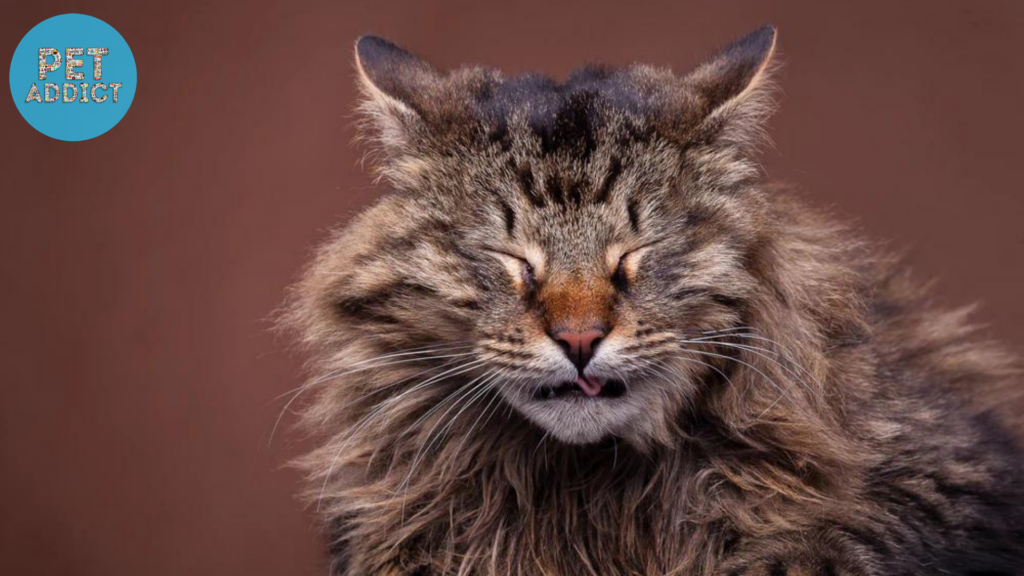
Viral Infections
Just like humans, cats can contract viral infections that lead to sneezing. The feline herpesvirus and calicivirus are two common culprits. These infections can cause respiratory symptoms, including sneezing, nasal congestion, and watery eyes. While these viruses aren’t typically life-threatening, they can be uncomfortable for your furry companion.
Allergies
Cats can also develop allergies, which might result in persistent sneezing. Common allergens include pollen, dust mites, certain foods, and even household cleaners. If your cat’s sneezing is seasonal or occurs after exposure to certain environments, allergies could be the cause.
Foreign Objects
Curious by nature, cats might occasionally get small foreign objects lodged in their nasal passages. This can lead to irritation and excessive sneezing as the body tries to expel the irritant. If you suspect this is the case, it’s essential to consult your vet for proper removal.
When to Be Concerned
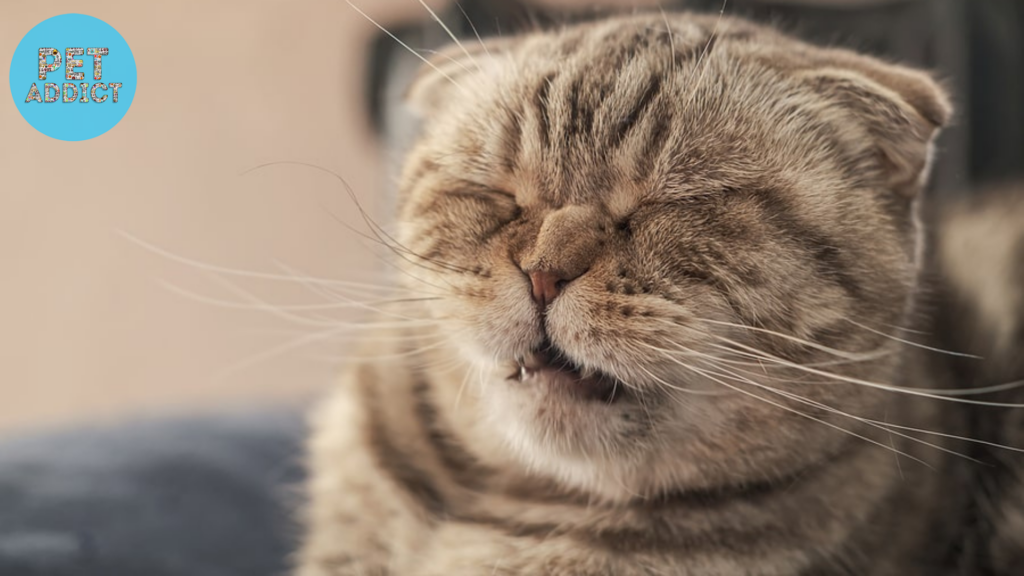
Persistent Sneezing
While the occasional sneeze is normal, persistent and intense sneezing could indicate an underlying issue that requires attention. If your cat’s sneezing continues for several days without improvement, it’s time to investigate further.
Discharge from Nose or Eyes
If you notice any discolored discharge from your cat’s nose or eyes, it might be a sign of infection. Green or yellow discharge can indicate a bacterial infection, while clear discharge might suggest a viral issue.
Changes in Behavior
Cats are masters at hiding discomfort, so if you notice changes in their behavior such as lethargy, loss of appetite, or excessive sleeping, along with sneezing, it’s time to consult a vet.
Home Remedies for Sneezing Cats
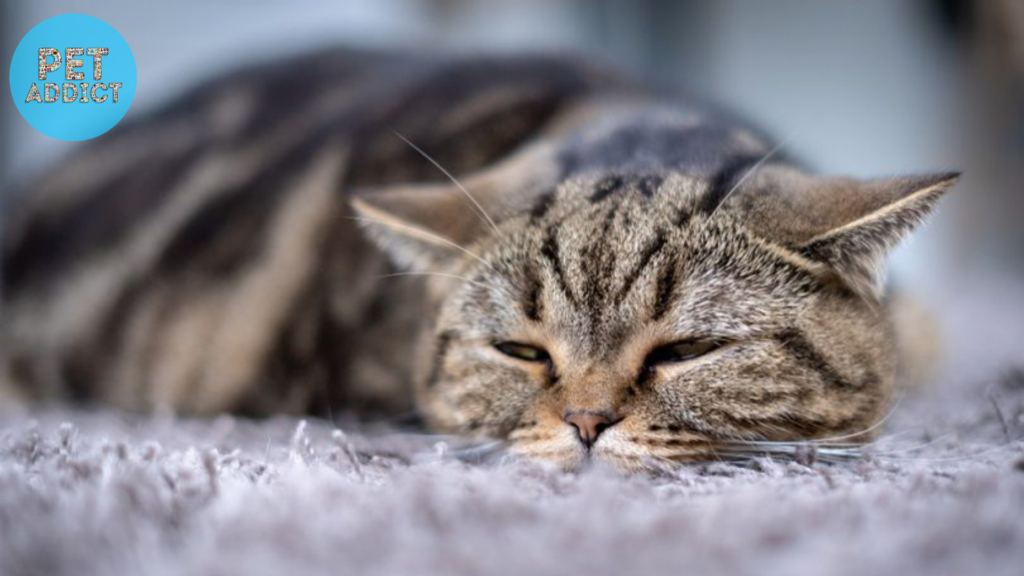
Humidifier Use
Using a humidifier in your home can help keep the air moist, which can ease your cat’s breathing and reduce sneezing. This is especially beneficial in dry climates or during the winter months.
Steam Treatment
Create a steamy environment in your bathroom by running a hot shower and allowing your cat to breathe in the warm, moist air. This can help clear their nasal passages and provide relief from sneezing.
Proper Hydration
Ensuring your cat stays well-hydrated is crucial. Water helps keep their nasal passages moist and aids in flushing out irritants.
When to Visit the Vet
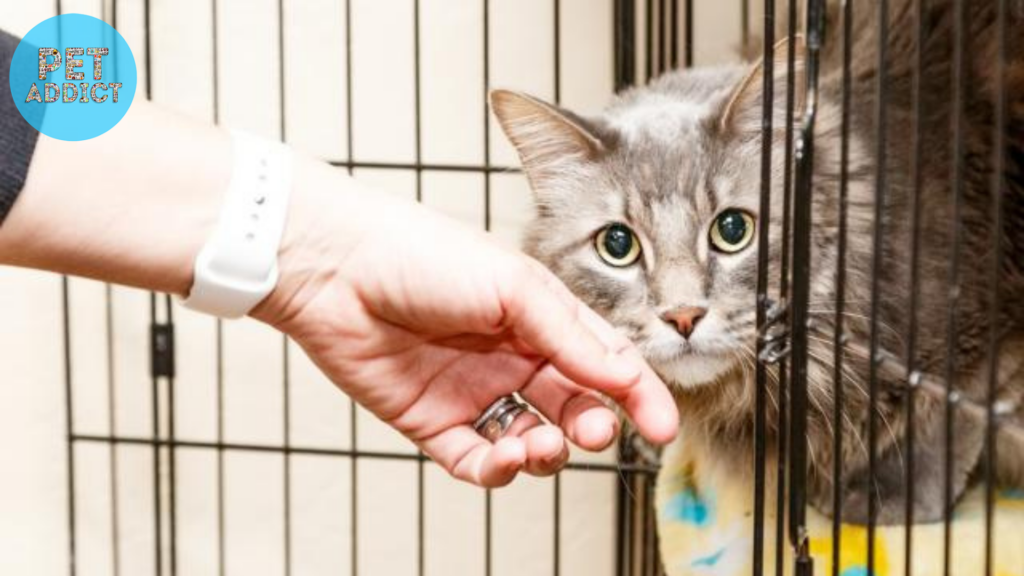
Underlying Health Conditions
If your cat’s sneezing is accompanied by other symptoms like fever, coughing, or difficulty breathing, it could indicate a more severe underlying health issue that requires professional care.
Diagnostic Tests
Your vet might recommend tests such as blood work, X-rays, or nasal swabs to determine the cause of your cat’s excessive sneezing accurately.
Professional Guidance
If your cat’s sneezing is persistent, severe, or causing distress, it’s best to consult a veterinarian for a thorough examination and appropriate treatment.
Preventing Cat Sneezing
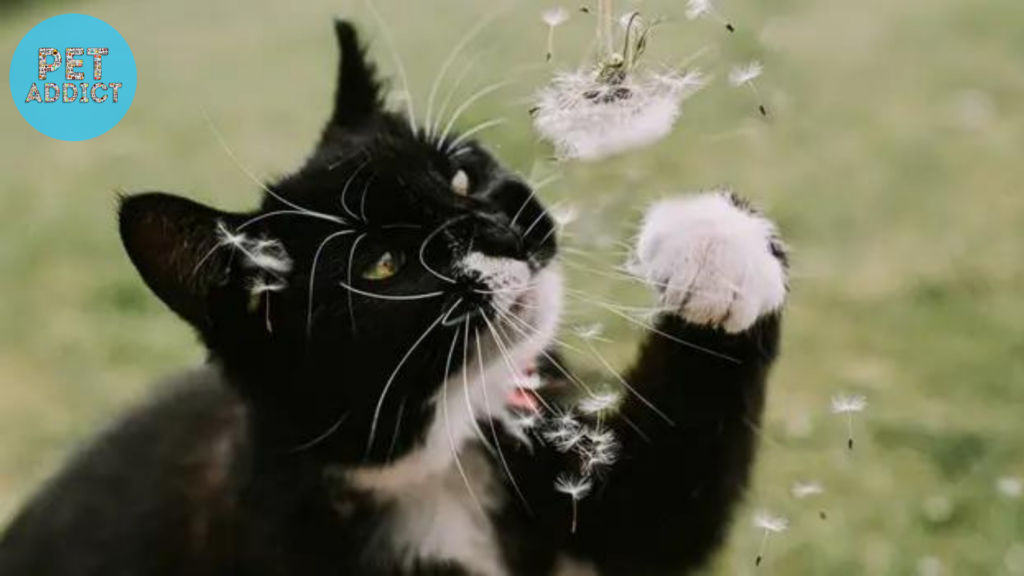
Clean Living Environment
Regularly cleaning your home and vacuuming can help reduce the presence of allergens that could trigger sneezing. Ensure your cat’s bedding and favorite spots are clean as well.
Regular Grooming
Brushing your cat’s coat helps prevent the accumulation of dust and allergens. Additionally, trimming long facial hairs can prevent irritants from getting trapped in their nose.
Allergen Management
If you’ve identified specific allergens causing your cat’s sneezing, take steps to minimize exposure. This might include using hypoallergenic products or keeping your cat indoors during high pollen seasons.
Conclusion
In most cases, occasional sneezing is nothing to worry about, but if your cat is sneezing excessively, it’s important to investigate the underlying cause. By paying attention to their symptoms and providing proper care, you can ensure your feline companion stays healthy and happy.
FAQs
- Can I use over-the-counter cold medicine for my sneezing cat? It’s best to avoid giving human medications to cats without consulting a vet. Some substances can be toxic to them.
- Is sneezing in cats hereditary? While sneezing itself isn’t hereditary, certain breeds might be more prone to respiratory issues due to their facial structure.
- Can stress cause my cat to sneeze more? Yes, stress can weaken the immune system, making cats more susceptible to infections that cause sneezing.
- My cat’s sneezing has stopped, should I still visit the vet? If the sneezing has completely stopped and your cat is back to their normal self, a vet visit might not be necessary. However, if any symptoms return, it’s best to seek professional advice.
- How can I make the vet visit less stressful for my cat? Keep the carrier accessible and create positive associations with it. Additionally, use calming pheromone sprays to ease anxiety before the visit.

